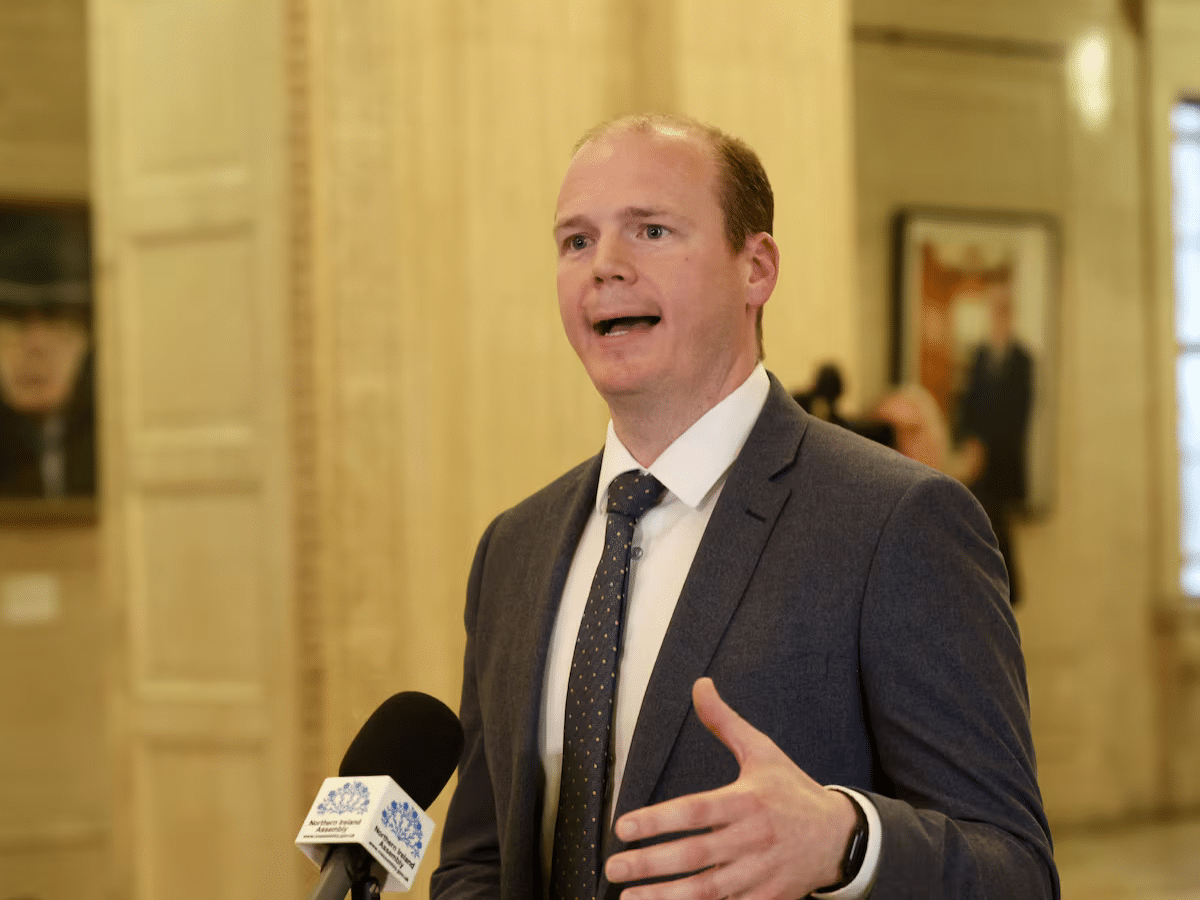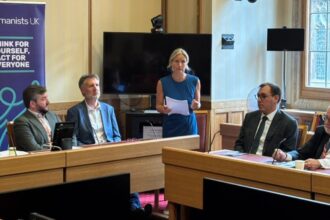Criticism has continued to pour in following the announcement on October 27 from Communities Minister Gordon Lyons in which he committed to hacking off a huge chunk of the grant given to housing associations. The associations are not-for-profit entities, independent from government, that are responsible for the construction of new social homes. From 1 December 2025, they will have to make do with the executive funding an average of 46% of the cost of a new social home, down from 54%. Any remaining money must come from private lenders.
North Belfast councillor for the Social Democratic and Labour Party (SDLP) Carl Whyte, speaking on Good Morning Ulster on the BBC, said the decision was “terrible news”. Lyons had claimed that:
…the changes will achieve better value and more social homes for those who need them…
In response Whyte said he could see:
…no scenario where reducing money to housing associations results in more social houses.
Housing chief gives incoherent defence of new policy
He said “there’s no question” that the executive will fall short of its target to build 2,300 houses per year. Following up on X, he was also critical of the woeful response of the Northern Ireland Housing Executive (NIHE) chief Grainia Long:
The cut in Housing Association Grant announced by Gordon Lyons will mean fewer social homes in Belfast – and what’s astonishing is that the Chief Exec of our housing authority, the NIHE, appears to support the move?
The Housing Executive’s role is to plan and distribute approved funds for use in constructing houses. They also manage social housing waiting lists, which currently have 50,000 people looking for a home. Long — who describes herself as an optimist on her X profile (always a bad sign) — gave a bizarre performance on the same radio programme. When pressed, she gave a series of non-answers as to why she believed it’s not “correct to say it will mean fewer homes [built]”. She answered variously “it will give certainty”, it will “[create] the conditions for investment in social housing” and that the grant reduction is a “smart move” which will provide “better focus”, without ever elaborating on her reasoning behind any of these statements.
Others were less panglossian, such as Grove Community Housing chief executive Agnes Crawford, who told the BBC the cuts will create a “significant threat” to her plans for a new housing development. Crawford operates in the same neck of the woods as councillor Whyte – North Belfast – which, along with the west of the city, is the area facing most acute need for social housing. She continued:
It’s challenging news. It makes the ability to get there all that more difficult. It means we’re heavily leaning on private finance and there’s a cost to that.
New social housing projects could be dead in the water
That cost may entail passing on higher rents to tenants. The Northern Ireland Federation of Housing Associations (NIFHA) also expressed grave concerns, saying in a statement that it had:
…real concerns about the future viability of many projects currently in development or close to commencement, particularly in areas of highest housing need.
Worryingly, the NIFHA point out that the changes were developed “without detailed consultation with the housing association sector”. It might seem like a good idea to talk to the people that build social housing before you make a big cut to the funds for building social housing, but apparently that’s not how things work in the dysfunctional world of Six Counties politics.
Green Party NI Belfast Councillor Brian Smyth pointed out that the Democratic Unionist Party (DUP) have no business blaming immigration for lack of social housing when the party slashes funding for new stock:
The next time anyone from the DUP tries to blame pressures on housing on immigration, remind them of their failures.
DUP can’t blame migrants for a crisis they refuse to fix
This assumes the policy isn’t a cynical one to further exacerbate a narrative around migrants and housing that plays into the DUP’s hands. Like Britain and the Republic of Ireland, far-right activists in the North of Ireland (and their kindred spirits in government) have managed to successfully mobilise around new arrivals to our shores supposedly getting preferential treatment for state-provided accommodation.
The reality is, of course, that a wealthy country like Britain could cease tax giveaways to the ultra-rich, stop pissing away money on war, and then have more than enough cash to provide housing to both those fleeing persecution abroad and locally-born people in need of shelter.
Speaking to That’s TV Belfast, Smyth went on to give an excellent rundown of all the social issues housing touches:
We were supposed to have built 40,000 [social homes] in the last 20-25 years. We’ve only built 18,000. There needs to be a rapid expansion of house building.
I think that would give construction firms security, would link people into long-term contracts. It would also improve affordability. But also, we could build new houses, retrofit old houses, that sort of future-proofing houses, lower bills in terms of people’s energy costs, which again is another thing that is harming a lot of people, but again particularly people on lower incomes, i.e. young people.
He concluded by declaring what should be obvious — that “housing should be a human right”. The consistent failure on delivering affordable housing has been a striking trait of the neoliberal English-speaking world, where policies of treating a human necessity as a commodity have abounded. By pushing housing associations into increased reliance on private lenders, Lyons has doubled down on this failed strategy. Given the multifarious effects housing policy has on society at large – outlined so effectively by Smyth – the negative implications of this decision could be considerable.
Featured image via the Irish News













